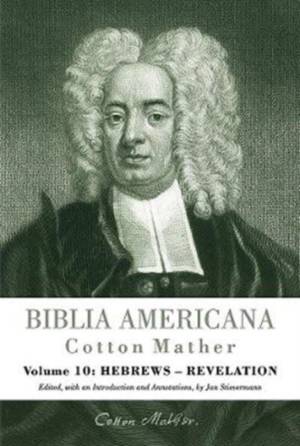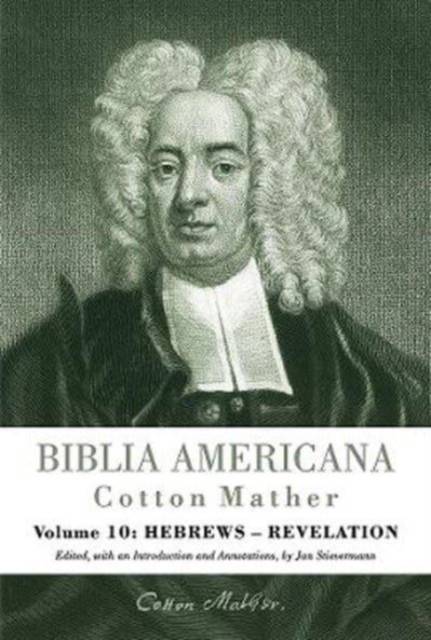
- Afhalen na 1 uur in een winkel met voorraad
- Gratis thuislevering in België vanaf € 30
- Ruim aanbod met 7 miljoen producten
- Afhalen na 1 uur in een winkel met voorraad
- Gratis thuislevering in België vanaf € 30
- Ruim aanbod met 7 miljoen producten
Zoeken
Biblia Americana
America's First Bible Commentary. a Synoptic Commentary on the Old and New Testaments. Volume 10: Hebrews - Revelation
Cotton Mather
Hardcover | Engels
€ 198,95
+ 397 punten
Uitvoering
Omschrijving
This volume of the Biblia Americana (1693-1728) contains Cotton Mather's annotations on Hebrews, James, 1-2 Peter, 1-3 John, Jude, and Revelation, as well as two series of essays on various matters of biblical interpretation. A mixture of pious explications and historical-textual criticism, the annotations are a treasure-trove for scholars interested in the development of Reformed theology and biblical exegesis during a decisive period of intellectual change in the early modern Atlantic world. Mather, an apologetically oriented but deeply learned scholar, confronts the early Enlightenment challenges to the authority of the Bible and core doctrines like the Trinity. He discusses problems of translation, textual variants (e.g., the Johannine comma), but also authorship and canonicity, especially with a view to the so-called Catholic Letters and James. The extensive annotations on Revelation offer a window into the development of Mather's millennialism and, more specifically, his changing interpretations of hotly-debated issues such as the eschatological conversion of the Jews, the expected date for the return of Christ and the nature of His kingdom. In the appended essays, Mather, in conversation with German Pietism, develops a biblical hermeneutic that emphasizes an experiential approach and the need for spiritual illumination. He also engages with antiquarian scholarship on the Scriptures, their original contexts, provenance, and transmission, as well as with literature that situates Judaism and Christianity in a larger history of ancient religions and cultures.
Specificaties
Betrokkenen
- Auteur(s):
- Uitgeverij:
Inhoud
- Aantal bladzijden:
- 1117
- Taal:
- Engels
Eigenschappen
- Productcode (EAN):
- 9783161616860
- Verschijningsdatum:
- 1/01/2023
- Uitvoering:
- Hardcover
- Formaat:
- Genaaid
- Afmetingen:
- 231 mm x 155 mm
- Gewicht:
- 3755 g

Alleen bij Standaard Boekhandel
+ 397 punten op je klantenkaart van Standaard Boekhandel
Beoordelingen
We publiceren alleen reviews die voldoen aan de voorwaarden voor reviews. Bekijk onze voorwaarden voor reviews.








